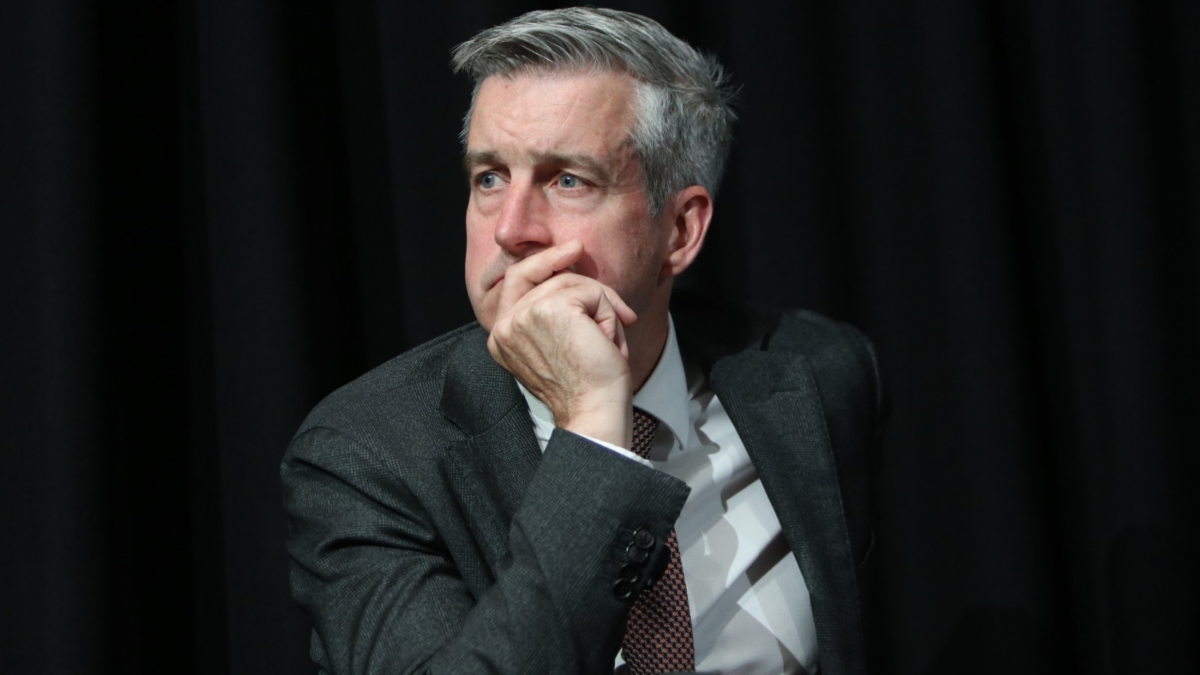‘Tremendous positive change’: Paul Schroder says yes to the test
To many in the superannuation industry Your Future Your Super (YFYS) is a Pandora’s Box of unintended consequences that should have remained shut. But AustralianSuper CEO Paul Schroder likes YFYS, and he’s getting fed up with the funds that don’t.
“Everywhere you go outside Australia everybody says that it’s a fantastic system,” Schroder told the ASIC annual forum on Thursday (November 3). “What’s frustrating about this place is, do we care about member performance? Of course we do. Should we have a performance test? Of course we should. But what happens is funds (start whining) about this detail and that detail and clause one, two, three.
“The bottom line is we have a great system and we have to improve it. I’m actually absolutely frustrated with sitting in rooms where people are going down to the minutiae and not remembering that members need you to perform.”
“We get distracted by this off to the edge detail (when the question is) should we as funds make more money than a passive benchmark? Of course. Should we make more money than the median? Of course. If we can’t keep doing that we should stop and give the money to someone else.”
While warning that the super industry can’t afford to get caught up in party politics – noting that most of AustralianSuper’s members will see 15 federal treasurers in their lifetime – Schroder said that the former government “doesn’t get enough credit” for the “tremendous positive change” it made in orienting the legislative settings of superannuation towards customer outcomes through YFYS. Still, those legislative settings have created an environment of rapid consolidation that even the regulators (currently encouraging such mergers) have grown concerned about.
“The most obvious thing that’s happened is the whole system is growing rapidly. So we’re about double the size of GDP today, but in 10 years it’ll be four or five times GDP. There’s been consolidation and you’ll get a smaller number of what I expect will be better run funds. I know there was a top ten best in class idea but I think we’ll wind up around that number of big funds with a series of smaller funds that will all internalise things and globalise.”
“We will have more larger funds because it’s the only way to reduce fixed cost per member. It’s the only way to properly go global. But the challenge for me (and a host of other big funds) is to keep proving that the model works. But like for like, a great big fund is always going to be better than a great small fund. I have no doubt about that.”
“Our model here is we’re trying to create something that nobody could have by themselves… I want a cleaner in Brisbane to be able to invest like a trillionaire in New York. We want to be that so they can have costs they otherwise wouldn’t have as low as they would, opportunities better than they would have had, expertise they would never have been able to employ by themselves.”
People are making more superannuation choices and are more engaged with it than they used to be, Schroder says, and half the people who joined AustralianSuper last year joined of their own volition rather than through employer arrangements.
“There’s reason to believe that the combination of real competition between quality contenders – and there are a range of quality funds – and real regulation that sets the floor as well as the standards inside it, transparency and choice, that’s already happening,” Schroder said.
“Money is already flowing towards where people think the performance and the trustworthiness is and flowing away from the alternative. It might be happening too slowly and it might be difficult, but I don’t want to be pessimistic about that. People are more and more engaged with their super.”











